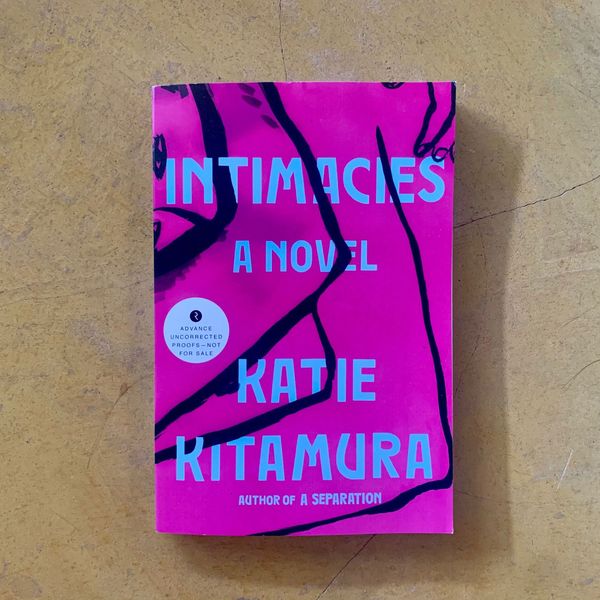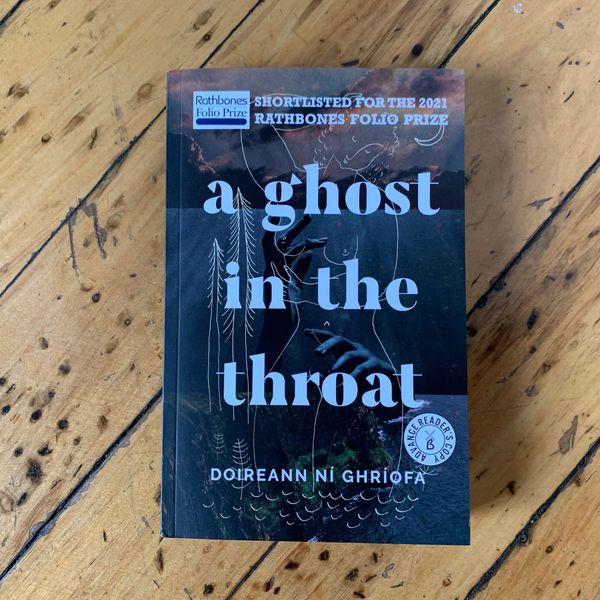
Are factoids about other people’s jobs interesting to you? I hoard them like fine treasures. Once, in central Oregon, I was chastised by a rancher for asking how many cows he owned. First, he said, this was a rude question because I was basically asking him his net worth. Second, he said, one wouldn’t say “cows” but rather “head of cattle” — as in, “I have 500 head of cattle, not that it’s any of your business.” He went into finer detail, but we don’t have room for it here. The point is that an inappropriate icebreaker yielded a trove of Rancher Info that I often visit and admire in my own brain. It sits in a glass case between Phlebotomist Info, Plywood Trucking Info, and many others.
This nosiness about other people’s jobs is likely driven by the fact that my job, to a fly on the wall, looks very boring. I’m sure many people would say the same about their jobs; nothing is more tedious than your own obligations! But even by objective standards, my “process” offers sub-paint-drying levels of stimulation: I sit in a chair all day. After a while my neck starts hurting. The first book below inveigled me not with its plot or its cover, but with the main character’s job description. I came for the vocation. I stayed for everything else.
Intimacies by Katie Kitamura
Fiction, July 20
When we meet our unnamed narrator, she has recently come to The Hague from New York, having accepted a position as a staff interpreter at the International Court of Justice. (Objectively an extremely cool job.) A dual life soon unfolds before her, shaped by efficient public transportation and high-tech espresso machines outside of working hours, war criminals and heinous acts of global significance at the office. Working at the court, as it turns out, requires immense dissociative abilities.
One day a deposed president on trial at the court specifically requests the narrator’s services. (A why me? moment if there ever was one.) She is placed on his case and begins, against her will, to empathize with him — even as she interprets witness testimonies about his monstrous record. Meanwhile, Unnamed Narrator’s boyfriend has vanished to Portugal for nebulous reasons, and she is left alone at his apartment trying to figure out if she’s being ghosted. (I will not spoil the answer.)
Kitamura writes the kind of minimalist prose that can feel skeletal if done poorly. In this case, the austerity is enthralling — all the more so because I couldn’t figure out how she pulled it off, even after I read the book twice with a pencil in one hand. How did she make so much happen with so few words? A better technician of prose could figure it out; I’m happy to marinate in bewildered reverence.
RIYL: Rachel Cusk, vibrating with tension, this Judith Leyster painting, ulterior motives
A Ghost in the Throat by Doireann Ní Ghríofa
Hybrid, June 1
I used to work with an Irish woman and a fun game she invented was writing down Irish names on a piece of paper and then making me guess how to pronounce them. The distance between my guesses and reality was always vast, and therefore hilarious. Here, you and I can play the game together now: How do you think the name “Caoimhe” is pronounced? Answer at the end of this blurb.*
Even if you’re not a person for whom foreign phonemes are a source of ecstasy, A Ghost in the Throat is a thrilling voyage into the lore of Ireland, motherhood, marriage, blood, and guts. I’ve listed the genre as “hybrid” above because it is part literary analysis, part memoir, and part fiction. The author, Doireann Ní Ghríofa, is a poet who becomes ensorcelled by an 18th-century lament, primarily composed by a woman named Eibhlín Dubh Ní Chonaill. The lament describes Eibhlín Dubh falling in love and subsequently finding her husband murdered and then drinking handfuls of his blood from her palms, among other things, and Ghríofa — or the book’s narrator, who may or may not be synonymous with Ghríofa — becomes obsessed with retranslating it from the Irish. She choreographs warp-speed library visits with her young children in tow, racing through the stacks while one kid blasts a diaperload and the other eats a forbidden banana. Once she saps the local libraries, she sneaks into university collections to excavate histories and journal articles. In this piecemeal way, Ghríofa assembles a cache of information on Eibhlín Dubh, composing her translation during minutes stolen away from domestic tasks. This is both a page-turner and a raw but erudite expression of a totally unique consciousness.
*Caoimhe is pronounced “QUEE-va” or “KEE-va”
RIYL: Following a pet obsession to the bitter end, fairy rings, going to the beach in winter, Ellen Dissanayake, marginalia, W.G. Sebald
Great Granny Webster by Caroline Blackwood
Fiction, 1977
The sole blurb on the cover of my copy of this novella describes it as “powerfully malicious,” which might be the only two-word descriptor on earth that guarantees I will drop everything for hours until both the power and malice of the book at hand have seeped through my eyes and blackened each of my gray cells.
The premise here is that an English girl is sent to live with her grandmother after a minor operation in London, with the logic that she will be exposed to “sea air.” (Wouldn’t it be terrific if modern health insurance considered “sea air” reimbursable? We all know it works, even if we can’t prove it.) Granny Webster follows in the grand literary tradition of sadistic English caregivers, speaking entirely in poisoned darts and reveling in acts of irrational tyranny. She keeps her mansion as cold as a morgue for frugal purposes while living in terror of “draughts,” not allowing the window of her Rolls-Royce to be lowered more than a crack on drives. She hates “colors.” She serves needlessly austere meals on heirloom silver — pinpoints of margarine on an engraved butter dish; minute portions of canned spaghetti arranged on a banquet platter and delivered by a servant. Baroque cruelty toward children is only entertaining in fiction, and usually only when written by Roald Dahl or Charles Dickens. But in this case, as the internet says: “Shoot it into my veins.”
The author (full name: Lady Caroline Maureen Hamilton-Temple-Blackwood) is famous for a number of things: her inherited wealth, as heir to the Guinness fortune; her wit; her alcoholism; her marriage to and immortalization by Lucian Freud. All of this biographical tinsel has eclipsed her writing, but maybe we can change the course of history. The person who recommended this to me anonymously cited one of the blurbs on their copy of the book, which compared it to “a box of chocolates with amphetamine centers.”
RIYL: Shirley Jackson’s We Have Always Lived in the Castle, brainstorming a mordant inscription for your future gravestone, Michael Apted’s “Up” documentary series, decline
WHY DON’T YOU …
• Duck dive into this monument to African surf culture and then mail me an envelope of WELL-CONCEALED CASH so I can book a ticket to Ghana? Thanks in advance!
• Add a little SALT to your diet with a typically saline novel by Lionel Shriver — which is like if Barbara Pym and Martin Amis collaborated on a Black Mirror episode?
• Tick all the boxes as you careen through the new Edward St. Aubyn novel? Elegance? Yes. Drugs? Oui. Depravity and suffering? Of course. A prose style so charming that it envelopes you like A BLANKET OF RARE FIBERS? Nothing less!
• Grope in the dark with Emily Present’s LASER BEAM of a poetry chapbook — tiny, mighty, and occasionally blinding — to light your way?
• Collect the FLOTSAM AND JETSAM of your mind and examine it closely via this new edition of Emerson’s Self-Reliance, accompanied by 12 mini-essays by the genius Jessica Helfand?
• Sharpen your claws on Lisa Taddeo’s WHETSTONE of a Los Angeles novel?
SUGGESTED PAIRING
Beach reads don’t have to be lightweight — they just have to be riveting enough to distract you from the ice-cream truck and the screaming children. This tale of an American family grappling with schizophrenia will have you on the edge of your towel.
Every editorial product is independently selected. If you buy something through our links, New York may earn an affiliate commission.
More From This Series
- Matrix and 9 Other Reads I Can’t Get Out of My Head
- The Listening House and 9 Other Reads I Can’t Get Out of My Head
- The Plot and 8 Other Reads I Can’t Get Out of My Head





